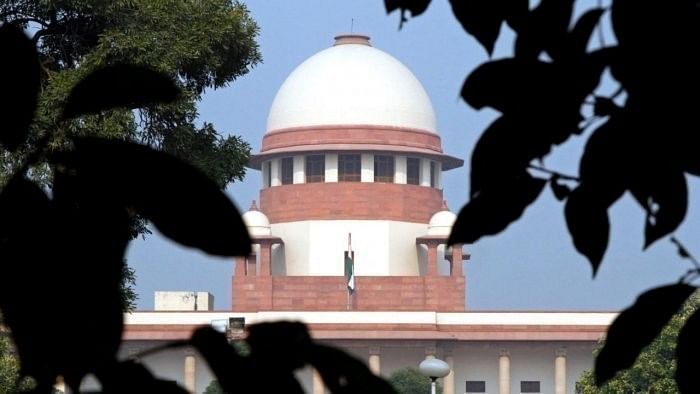
The Supreme Court of India.
Credit: PTI File Photo
New Delhi: The Supreme Court on Tuesday set up a Constitution bench led by Chief Justice of India D Y Chandrachud to deal with an unusual situation arising out of an order by a single judge of Punjab and Haryana High Court criticising the apex court.
The judge had disapproved the Supreme Court's approach for "presuming itself to be more 'supreme' than it actually is and the HC to be lesser 'high' than it constitutionally is".
The top court registered a suo motu case as 'In Re : Order of Punjab and Haryana High Court Order Dated 17.07.2024 and Ancillary Issues' and scheduled it for hearing on Wednesday, August 7.
The bench also consisted of Justices Sanjiv Khanna, B R Gavai, Surya Kant and Hrishikesh Roy, all senior most judges in the Supreme Court.
In the order of July 17, 2024, a single judge bench of Justice Rajbir Sehrawat raised several questions about the relationship between the Supreme Court and High Courts in India’s judicial system.
The judge made certain remarks criticising the Supreme Court for issuing a stay order in a contempt proceedings initiated by the high court. He also questioned the Supreme Court’s authority to interfere with contempt proceedings in high courts.
He wrote, "Seen at a psychological plane this type of order is actuated, primarily, by two factors, firstly a tendency to avoid owning responsibility of the consequence which such an order, in all likelihood, is bound to produce, under a pretense that an order of stay of contempt proceedings does not adversely affect anybody, and secondly, a tendency to presume the Supreme Court to be more ‘Supreme’ than it actually is and to presume a High Court to be lesser ‘High’ than it constitutionally is”.
